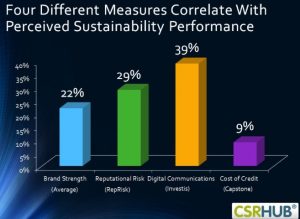“The Weirdos” Published on Creative Cafe
Check out my first piece of flash fiction “The Weirdos” in The Creative Cafe.
Check out my first piece of flash fiction “The Weirdos” in The Creative Cafe.
The Imaginative Fiction anthology Borderlands 6 that included my short story, “The Dishes Are Done,” won the 2017 Bram Stoker Award for Anthologies!
Donald Trump’s election has sent the global climate community into a tailspin.
It seems every climate change action supporter is making lists of the awful things he’s
planning to do, so I’ll turn to the very succinct one I received in an email from Michael Brune, Executive Director of the Sierra Club: “End of Paris Climate deal. End of the EPA. End of the Clean Power Plan. More drilling. More coal. More pipelines. More lives destroyed. More wildlife bulldozed.”
I’d add to Brune’s list of deplorable actions Trump’s choice to lead the EPA transition, Myron Ebell, who Scientific American calls our “top climate skeptic.”
But we can’t forget what Neal Leary at Dickinson College’s Center for Sustainability Education reminds us in the Huffington Post the scariest fact of all: “Mr. Trump has asserted that climate change is a hoax.”
Leary refuses to give up: “I put my hope and efforts in action at state, local and institutional levels to keep and build momentum toward a clean, low-carbon U.S. energy system.”
Top on my list of Professor Leary’s institutional efforts would be American businesses, especially those that have turned away from fossil fuels and towards renewable energy for the most American of reasons — profit.
With the help of non-profit organizations such as the Carbon Disclosure Project, the Environmental Defense Fund, The Climate Group and the Center for Climate and Energy Solutions which set standards and rate companies’ environmental performance, our businesses are killing demand for coal by making energy efficiency a top priority and solar and wind the energy systems of choice. As eco-consultant Andrew Winston writes, “It’s flat out more profitable” to use renewables.
Another reason: renewable energy reduces a company’s risk.
How can renewable energy mitigate risk? The direct answer is that by installing their own solar power — either by building solar plants, as Google and other firms are doing or via rooftop solar to supplement the energy they draw from the grid — these companies ensure access to power without the risk of price fluctuations endemic to fossil fuels.
But there are other reasons why renewable energy lowers risk. For one, investors are becoming increasingly concerned with business’ environmental practices as Corporate Social Responsibility (CSR) becomes common practice. Charles Schwab features Socially Responsible Investing (SRI) on its Mutual Funds web page, commenting that it is “emerging as a significant trend in the financial markets” and noting that SRI increased 28% between 2012 and 2014, when total SRI assets topped $4.3 trillion. More investors reduces a company’s cost of borrowing in tough times, when raising money can otherwise be expensive.
But the even greater risk of not participating in environmentally sound policies is the potential damage to the brand. CSRHub, the sponsor of this blog and the world’s largest CSR database, analyzed its CSR ratings against data on brand strength and finds significant correlation:

In other words, what a company does for its community, including environmentally, affects the value of its brand. And that means customers are more loyal. And that translates into how much a company can charge for its products and its profitability.
Not everyone is a fan of CSR. But despite some bad actors using CSR to “green-wash” their reputations, the concept is embedded in American business and may provide a bulwark against climate deniers now coming to power. And who knows. If Trump does what he’s said he wants to do, eliminating the Affordable Care Act and drastically reducing social services, he might find himself in need of a boost to his reputation. And what could be more effective than saving the planet.
Photo courtesy of SCA Svenska Cellulosa Aktiebolaget
Last week CBS News ran a story about Dutch farmer Marc van Rijsselberghe, who is running experiments in the Texel Islands, Netherlands, to grow potatoes using in salt-ridden land. As more and more salty water seeps through the Dutch dikes onto its farmland, van Rijsselberghe and others are finding ways to adapt.
When CBS asks van Rijsselberghe how he knows which test strain will work, he says, “We ask the plants.” Whether they live or die in salty soil dictates which strains will be sent to other places suffering salt-induced soil degradation. Read more →
June 8th was World Oceans Day. It was celebrated with a reception at U.N. Headquarters in New York City. The Empire State Building was lit in white, blue and purple representing different layers of the ocean. Read more →
Originally published September 8, 2015. In the recently released “Islamic Declaration on Global Climate Change,” Muslim scholars from twenty countries joined Pope Francis in calling for action on climate change, in effect adding 1.6 billion Muslims to the 1.2 billion Catholics now called on to support the climate change movement. Acknowledging there will be climate deniers within that […]
Text of speech given to the Urban Land Institute, San Francisco, April 2002 Remember when futurists were predicting that telecommuting would be the death of cities. Well, all we have to do to find out what happened is look at San Francisco – office towers are full and rates are soaring. Clearly, the futurists were […]
Letter to Harvard Business Review responding to Michael Porter and Mark Kramer’s article “The Strategic Advantage of Corporate Philanthropy,” available through HBS Publishing. Three cheers for “The Competitive Advantage of Corporate Philanthropy.” Corporate managers have underestimated philanthropy’s benefits for too long. Porter and Kramer avoid the usual arguments about moral obligation and focus instead on competitive […]
